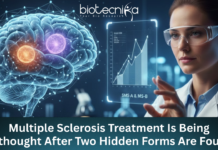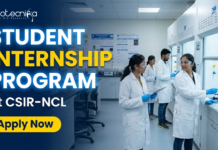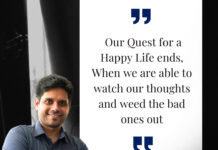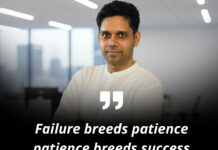New Strategy to Beat Hard-to-Treat Triple Negative Breast Cancer
A new research by scientists at the King’s College London and The Institute of Cancer Research, funded by Breast Cancer Now, has yielded a promising approach for treating triple-negative breast cancer by blocking an ‘addiction gene’ KIFC1.
Around 15% of all breast cancers are ‘triple negative’, with around 7,500 women in the UK being diagnosed each year. More common among younger women, and also among black women, triple negative breast cancers can be highly aggressive. They are more likely to spread to another part of the body where they become incurable, and unfortunately still have no targeted treatments.
‘Triple negative’ means that they lack the three molecules routinely used to guide treatment for breast cancers; the oestrogen receptor (ER), progesterone receptor (PR), and human epidermal growth factor receptor 2 (HER2). Triple negative breast cancers therefore cannot be treated with targeted drugs commonly used to interfere with these receptors, with patients being limited primarily to surgery, radiotherapy and chemotherapy.

“Our study has exposed a whole series of new genetic weaknesses in triple negative breast cancer – a particularly aggressive form of the disease. We believe these new ‘addiction genes’ can be exploited to find potentially exciting targeted forms of treatment,” said study leader Professor Andrew Tutt, director of the Breast Cancer Now Toby Robins Research Centre at The Institute of Cancer Research, London, and director of the Breast Cancer Now Research Unit at King’s College London.
“We studied one of the genes, KIFC1, in more detail, and showed that it could be a particularly promising new target for cancer drugs. We’re now starting an exciting new drug discovery programme to test the possible benefits of blocking KIFC1 in triple negative breast cancer – with the aim of taking a new class of drug into clinical trials.”
“These incredibly exciting findings could give us 37 new avenues of hope for thousands of women,” added the charity’s chief executive, Baroness Delyth Morgan.
“If we could develop drugs to block these ‘addiction genes’ to kill triple negative cancer cells, while leaving healthy cells unscathed, this could be the chink in the armour we’ve long been searching for.”
In the course of their investigation, the team performed a genome analysis of 182 patient breast cancer samples, to identify the genes either most overactive or present in the greatest numbers that triple negative breast cancers are particularly dependent on.
Having found 130 potential ‘driver’ genes, the scientists performed knockdown experiments to test how lacking these genes affected tumour cells’ and healthy cells’ survival. As a result, the team was able to discover 37 ‘addiction genes’ which, when silenced, suppressed tumour cells’ growth but had no effect on normal cells.
One of the most promising genes for new drug discovery was KIFC1 – a gene involved in helping cancer cells to divide their DNA equally into two daughter cells at mitosis.
The study’s findings strongly suggest that this ‘centrosome amplification’, a common trait of triple negative breast cancers, depends on KIFC1 for successful cell division. Following this work, the researchers are looking to discover drugs to block KIFC1 in the hope of creating a targeted therapy for triple negative breast cancers.























